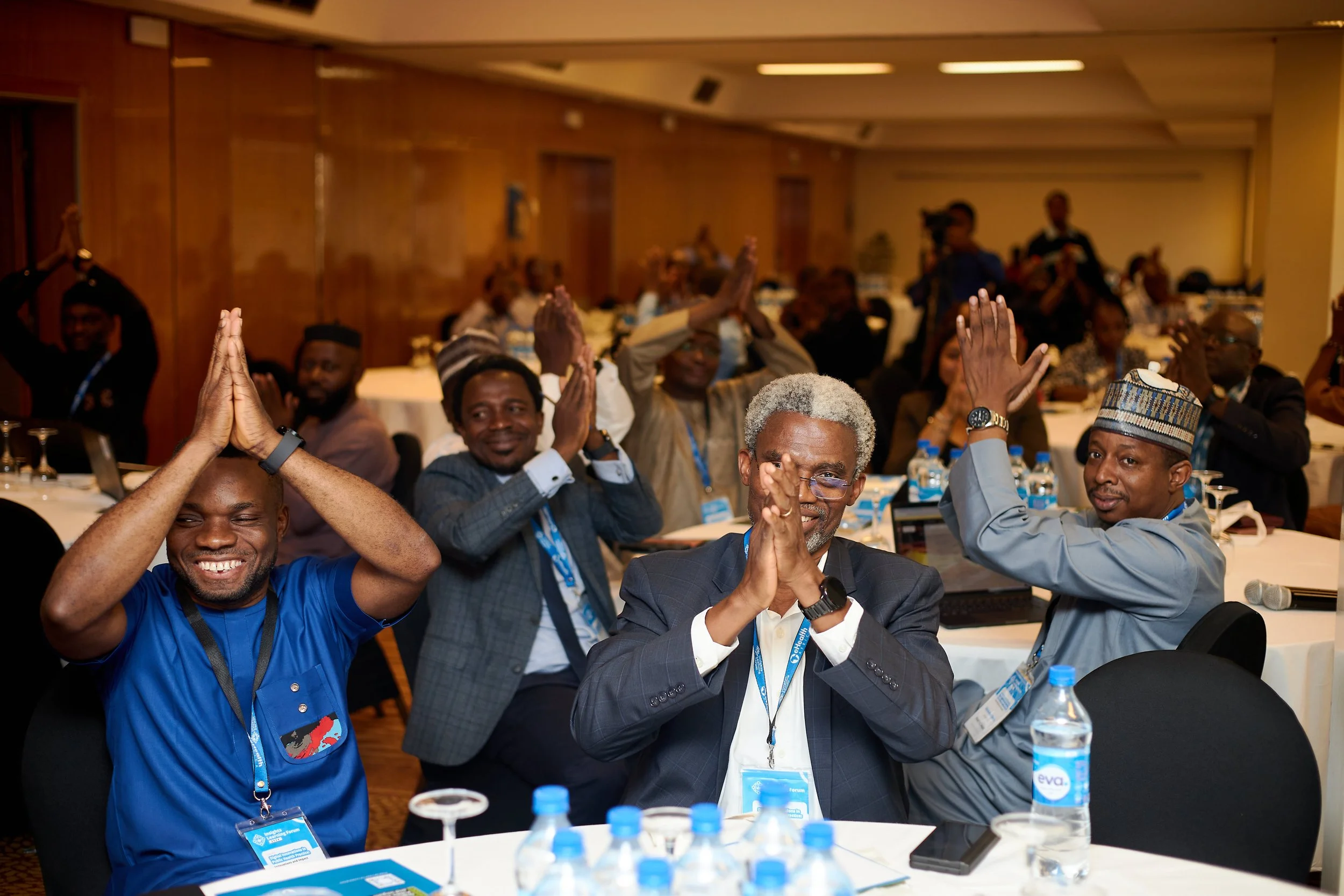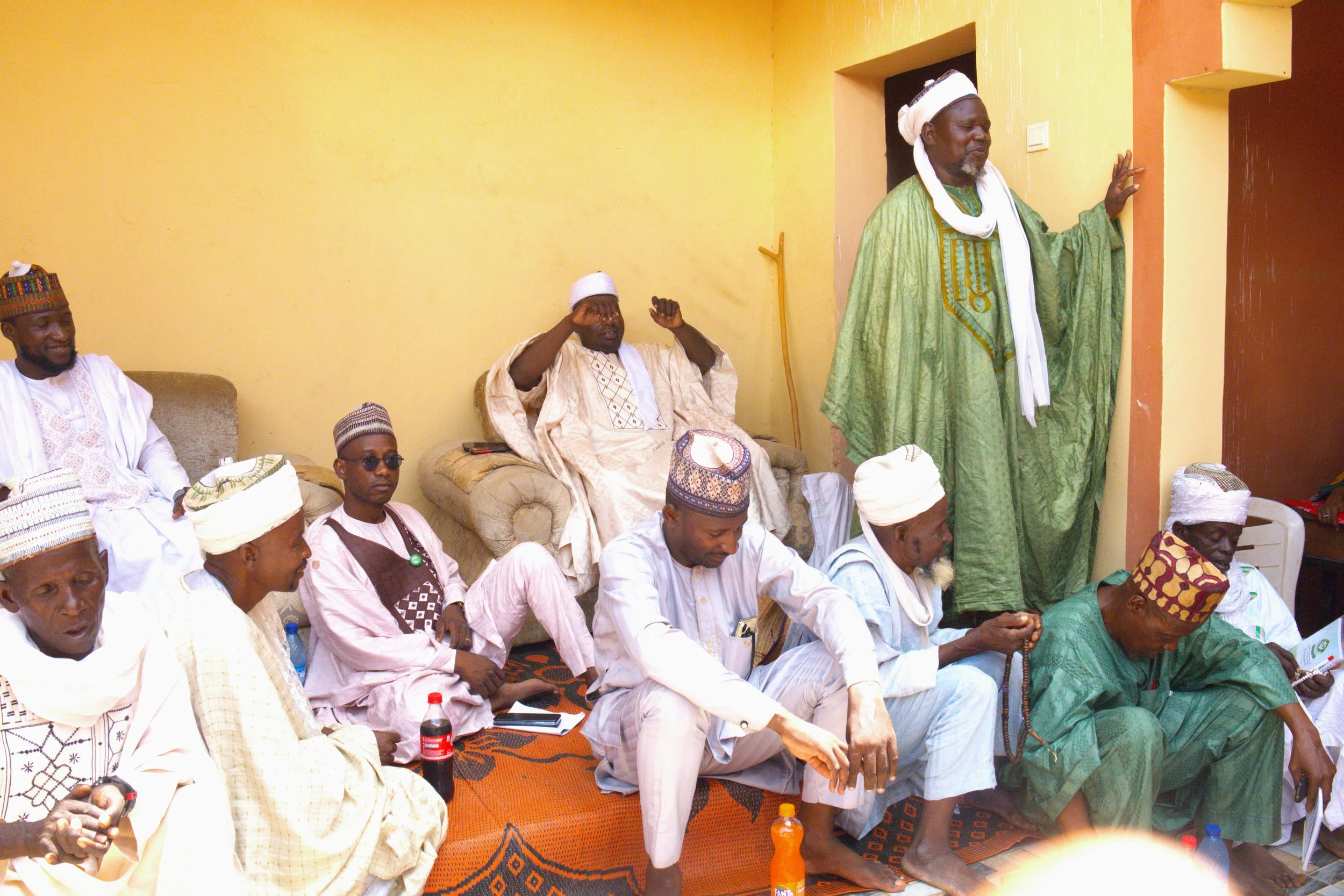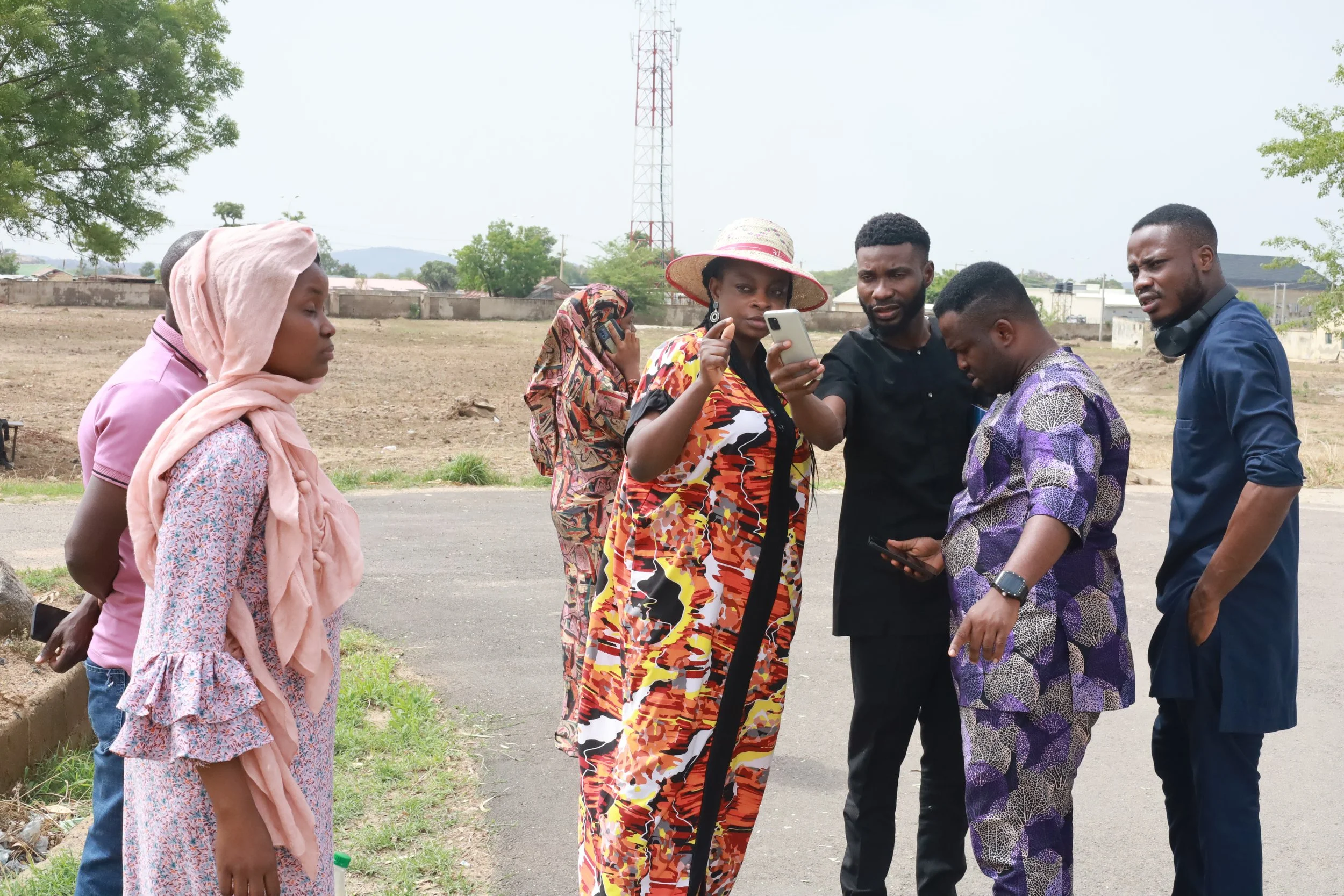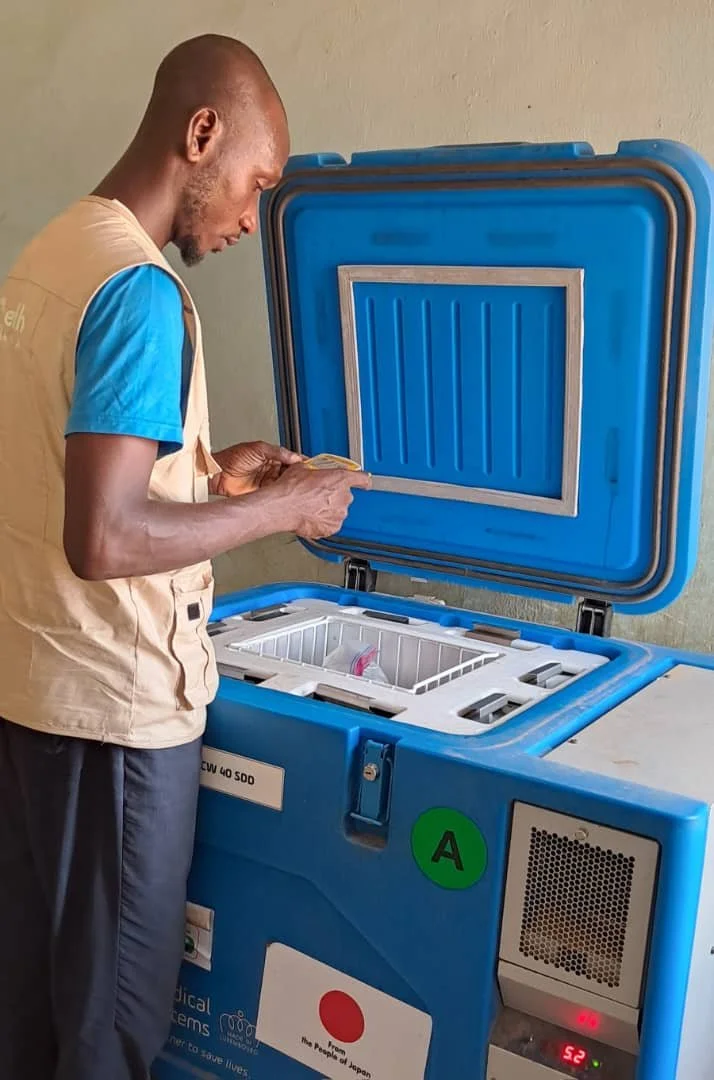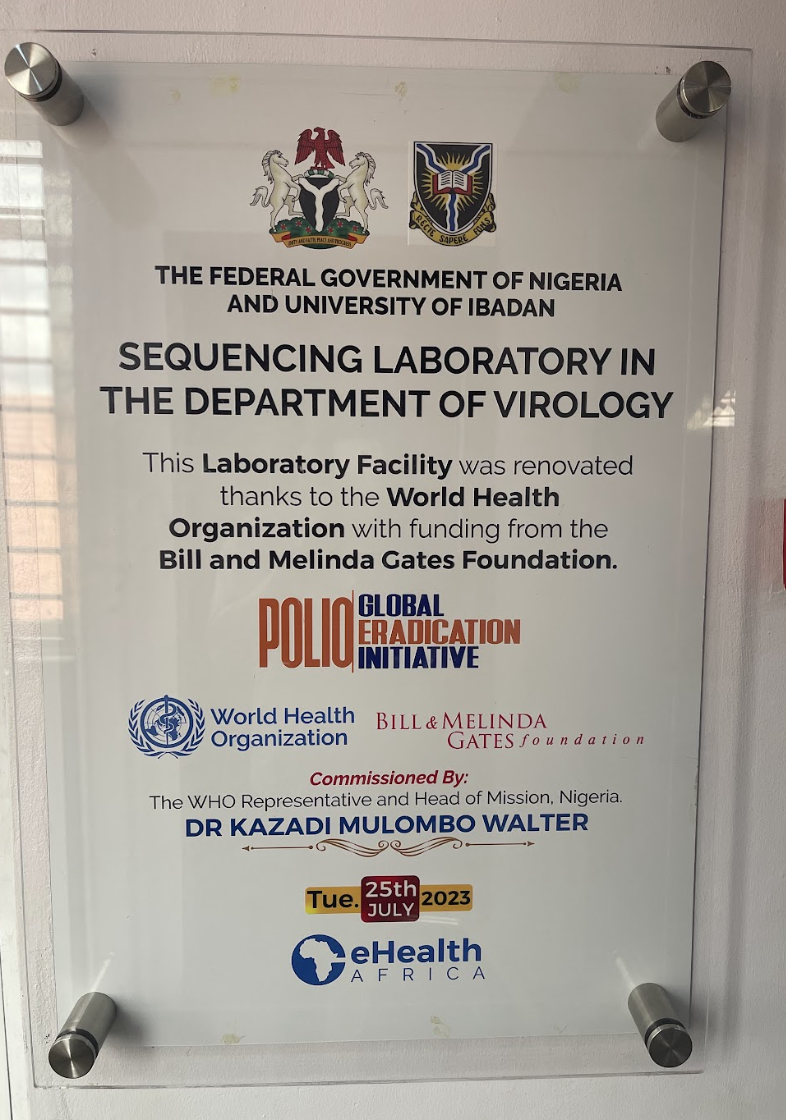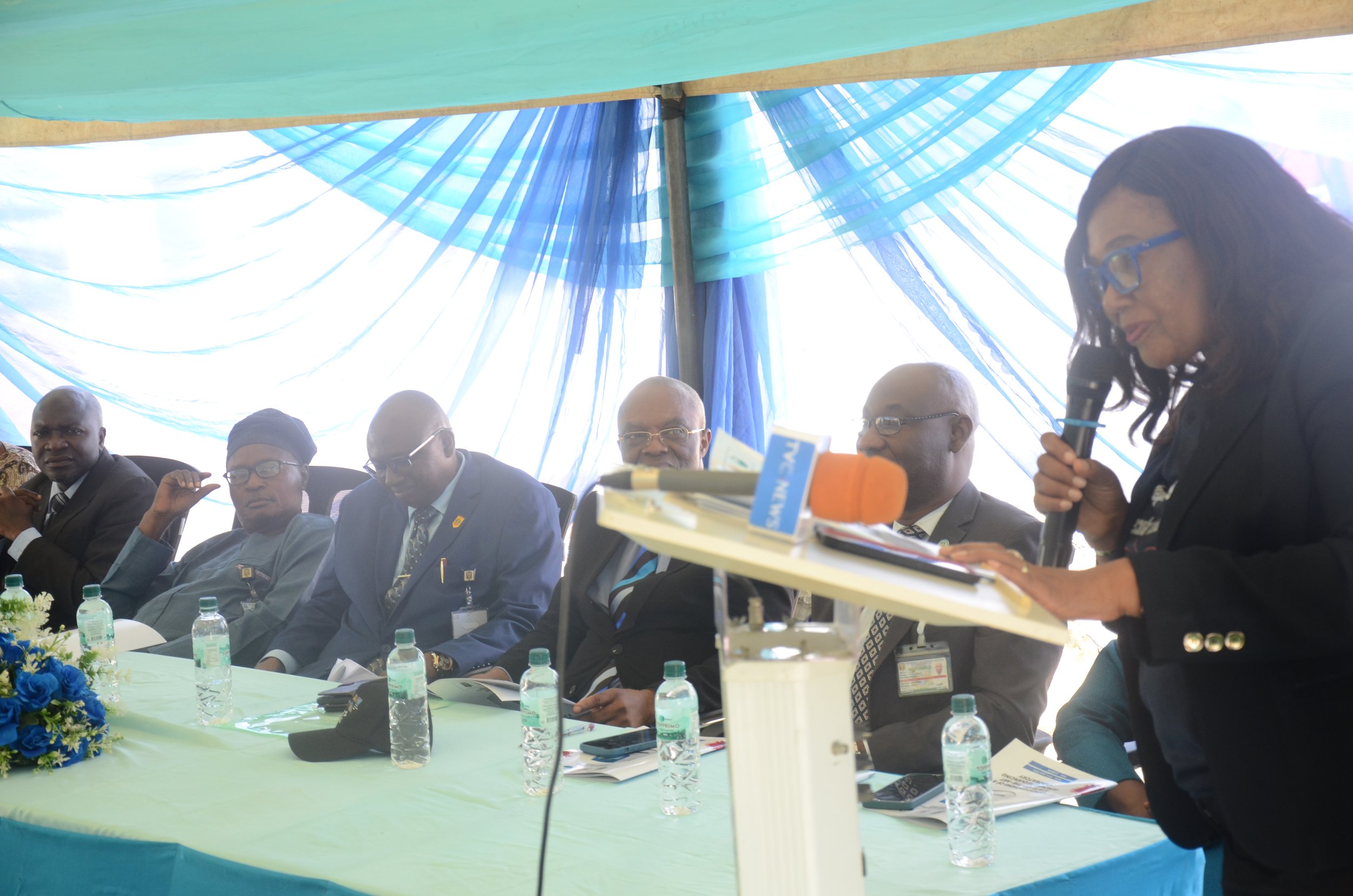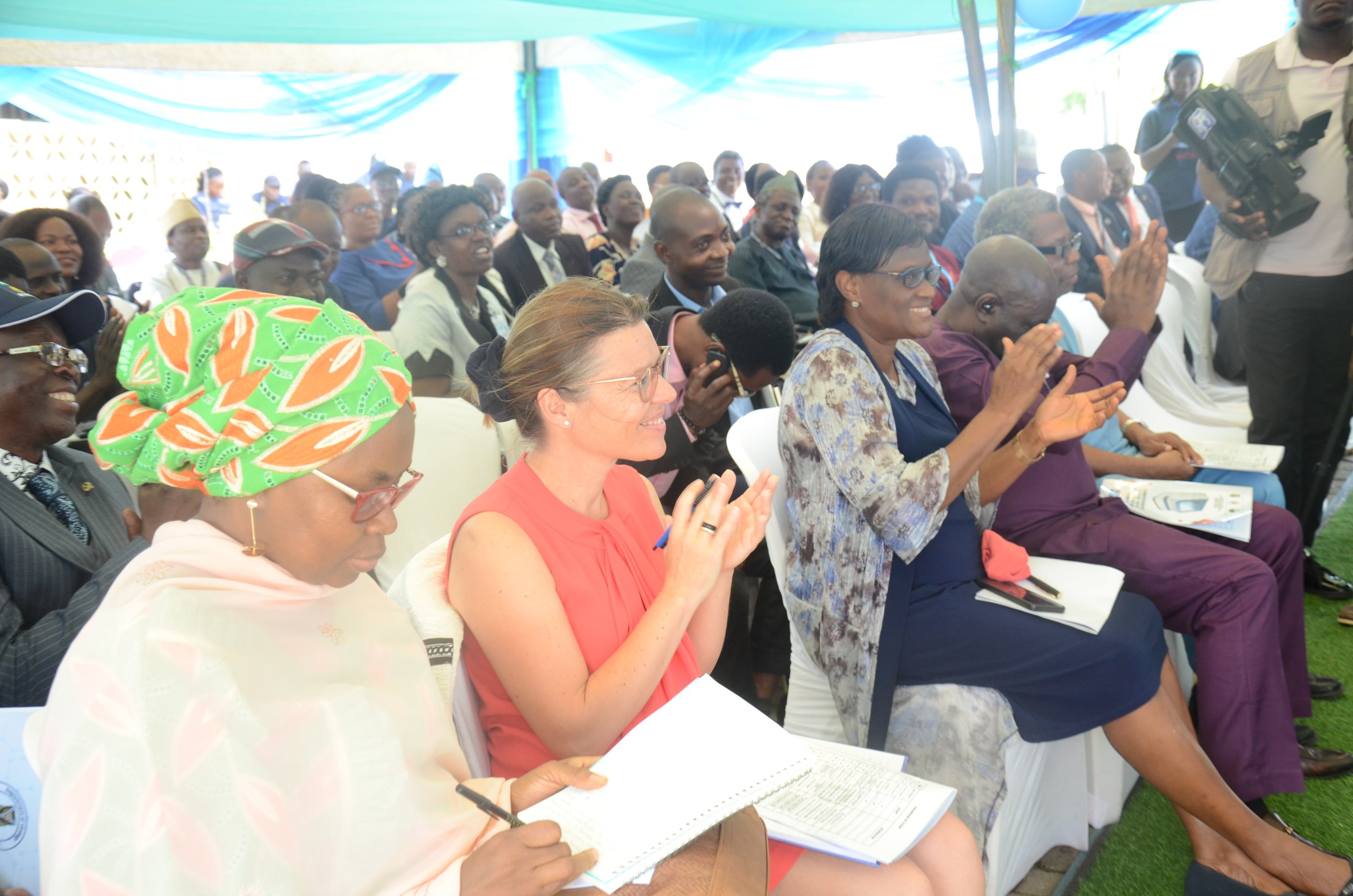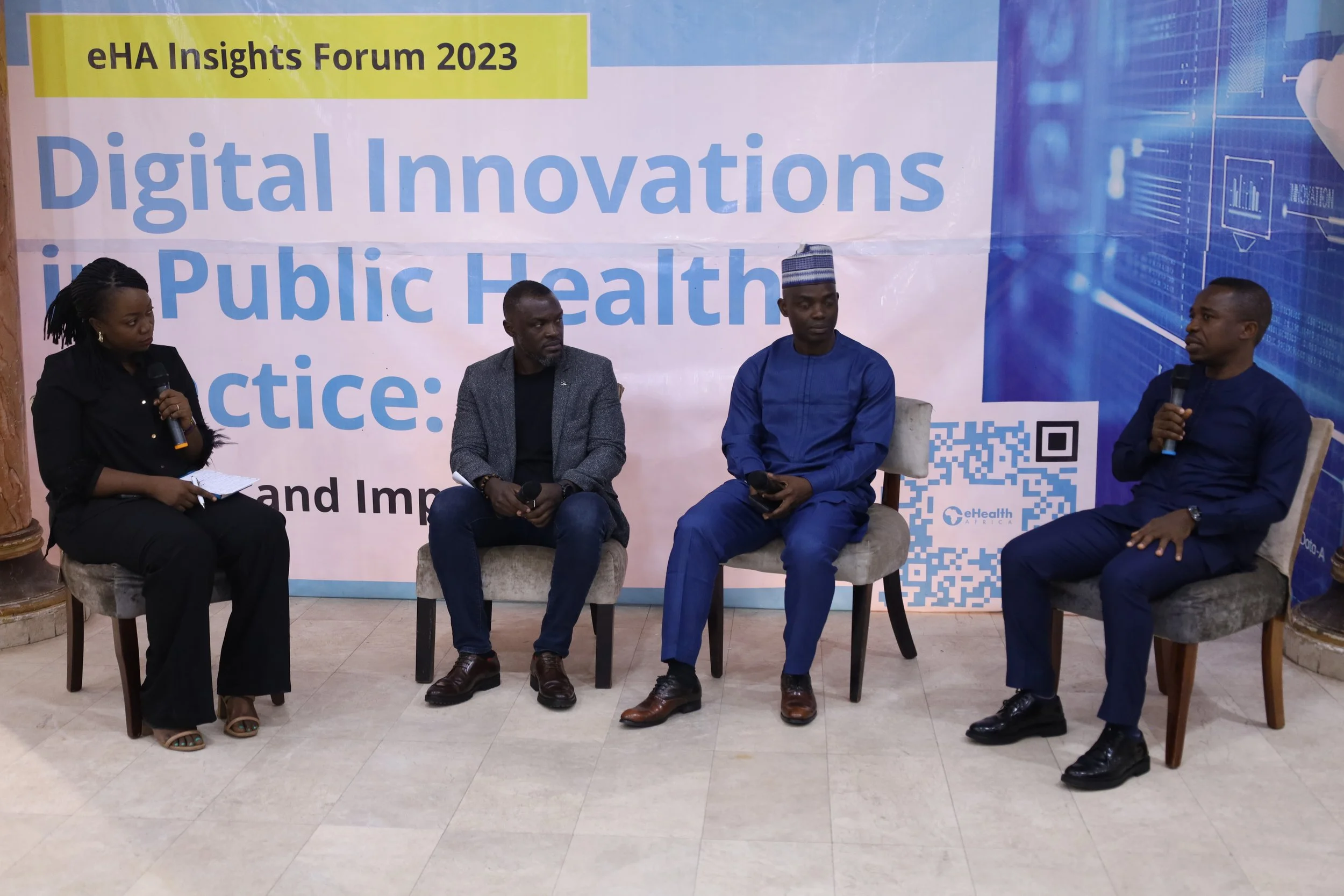In the last 6 months (Jan-June), over 2 million vaccines have been delivered to average of 351 cold-chain equipped health facilities monthly, leading to the immunization of over 800,000 children against Vaccine preventable diseases in Sokoto State
ehealth Africa Commits to promoting early detection of Vaccine Derived Polio Virus through Lab Support
by Moshood Isah
Nigeria may have been declared a polio free nation but the Variant Poliovirus Type 2 strain transmission still lingers. Nigeria reported 168 cases in 2022. This has made further interventions crucial particularly around early detection. The growing cases in a number of African countries require a focused effort to strengthen polio laboratories that can effectively help the affected countries to quickly confirm cVDPV2 cases and launch outbreak responses, including the introduction of novel OPV2.
In 2018, the World Health Organisation (WHO) introduced a Global Polio Surveillance Action Plan (GPSAP 2018-2020) to support endemic, outbreak, and high-risk countries in evaluating and increasing the sensitivity of their surveillance systems against Polio. The plan also initiated supplemental strategies that may help in closing gaps in detecting polioviruses, including strategies for immunodeficiency-associated vaccine-derived polioviruses (iVDPVs) while also strengthening coordination across surveillance field teams to foster a more effective programme and document zero cases worldwide.
The new Global Polio Surveillance Action Plan (GPSAP) for 2022-2024. also focuses on increasing the speed of poliovirus detection, improving surveillance quality at the subnational level, fostering the integration of polio surveillance with surveillance for other epidemic-prone vaccine preventable diseases (VPDs), and mainstreaming gender equality in surveillance activities and programming as a key enabling factor.
To achieve parts of the Global Polio Surveillance Action Plan (GPSAP) 2022-2024, ehealth Africa worked with World Health Organisation (WHO) supported by the Bill and Melinda Gates Foundation (BMGF) to renovate and upgrade the Sequencing Laboratory in the Virology department, University College Hospital (UCH) Ibadan, Oyo State. The laboratory was commissioned by Kazadi Walter, Country Representative and Head of Mission; World Health Organisation to Nigeria. This is part of the effort to improve surveillance, rapid detection and response against the spread of Vaccine Derived Polio Virus and other vaccine preventable diseases.
Speaking during the official commissioning of the Laboratory, Dr. Kazadi Walter reiterated the commitment of WHO towards eradicating polio virus through the provision of facilities and rendering of technical support to Nigeria’s health care. He stated that WHO in collaboration with the government established the Global Polio Laboratory Network of which 16 are currently in Africa, with two located in Nigeria; Ibadan and Maiduguri. According to Walter, the primary objective is to work with WHO in the African Region (AFRO) to equip the global polio laboratory network labs for robust and rapid sample analysis for polio and to provide support in equipping these labs with sequencing capabilities.
Prof. Kayode Adebowale, the university vice chancellor, commended the initiative saying “this laboratory will not only provide vital information for the eradication of polio but also contribute to our university infrastructure, helping us to fulfill our vision and mission in addressing social needs.” The VC said: “The department has played a crucial role in Nigeria’s polio eradication programmes by contributing significantly to the country’s achievements of being declared wild polio-free in 2021.
Speaking on the role of eHealth Africa in the support for Laboratory Supplies across selected countries in Africa, the Project Manager, Tolulope Oginni said, to ensure optimum utility of the laboratory supplies, eHealth Africa leverages previous and current experience in setting up and managing Emergency Operation Centers to strengthen the staff capacity at the Laboratories in operating the installed equipment.
“These interventions for the support for laboratory supply and installation with consumables currently ongoing in at least 12 African countries are expected to improve the labs functionality for faster outbreak detection”, he said. With the support of other stakeholders in the region, this intervention will support labs in the African region that are targeted for expansion of sequencing capacity, support to improve existing sequencing capacity, or labs that require support for virus isolation and identification. This intervention has a huge opportunity to explore collaboration with WHO and other global stakeholders to transform the laboratory infrastructure in Africa into world class facilities which in turn will significantly strengthen their capacity and preparedness for disease outbreaks.
IYD 2023: Achieving Green Tech Skills for Sustainable Health Sector - Atef Fawaz
The gospel of promoting environmental sustainability seems to have lasted as long as the human race, with the campaign taking different dimensions in different periods during the last decades. The apprehension about sudden change in temperatures in recent times has escalated precipitation leading to flood, amongst other negative impacts. It is more worrisome as the environmental situation is now being consistently aggravated by human activities, leading to a global concern that requires action from all . Thus, this year’s International Youth Day with the theme; Green Skills for Youth: Towards a Sustainable World, rightly mainstreams the need to shift towards an environmentally sustainable and climate-friendly world. This is not just crucial in promoting the global climate crisis but also relevant in achieving the Sustainable Development Goals (SDGs) as it relates to health and other sectors; the role of young people in the entire process cannot be underestimated.
According to the United Nations Concept note for this year’s celebration, Green skills are “knowledge, abilities, values and attitudes needed to live in, develop and support a sustainable and resource-efficient society”. This holistically captures all technical knowledge and skills that enable the effective use of green technologies and processes in occupational settings, as well as transversal skills that draw on a range of knowledge, values and attitudes to facilitate environmentally sustainable decisions in work and in life. As confirmed by the International Labour Organization (ILO), green skills transcends basic agriculture to any skill/job that contributes to the reduction in the consumption of energy and raw materials, limit greenhouse gas emissions, minimize waste and pollution, protect and restore ecosystems and enable enterprises and communities to adapt to climate change.
It's even further interesting that, to a large extent, human jobs and survival largely depend on the sustainability of the natural environment. Thus there is a huge responsibility to take intentional steps that promote a sustainable environment. In this vein, stakeholders at all levels must galvanize the energy of young people towards achieving green skills to build a sustainable world across different sectors.
Specifically, the health sector is taking notable leaps in developing and deploying digital innovations that have significantly reduced the use of paper in the health systems. This protects the trees, contributing to the SDGs of ensuring healthy lives and promoting well-being at all ages. Digital innovations like Logistics Management Information System (LoMIS), a suite of offline-capable mobile and web applications developed by eHealth Africa, addresses challenges with the supply/distribution of health commodities to last-mile health facilities. The LoMIS Suite applications provide critical solutions that ensure availability of health commodities, effective vaccine management, and enable broader health system policy decisions through the use of real data for insight and execution at the community, state and national level. Deployed in primary healthcare facilities in Kano, Sokoto and Bauchi, the solutions have reduced the challenge of zero stock for vaccines due to effective automated documentation of vaccines and its consumables while also limiting the use of papers to promote sustainability in both environment and the health sector. Progress recorded for SDG Goal 3, reveals global health has made some improvements in recent years. For example, 146 out of 200 countries or areas have already met or are on track to meet the SDG target on under-5 mortality.
Other environmental-friendly tools that have been used in the health sector in recent years include Geographic Information Systems (GIS); particularly in the area of vaccination and immunization programs. Geospatial tools that use environmental data however require stability of environmental conditions to ensure its optimal utility.
Thus there are a series of platforms that can be harnessed to achieve the objective of mainstreaming green skills amongst young people in line with the objective of this year’s commemorations. While healthcare stakeholders in concomitance with Information technology experts are increasingly scaling innovations to improve early detection and response to diseases, it is paramount to equip young healthcare providers especially at state and Local Government levels with the knowledge and information necessary to understand the importance of green skills to further promote sustainability in the sector.
This can be achieved through targeted training of budding experts in various sectors to build relevant skills that will enable them to contribute to achieving a sustainable world across sectors. A great example is the eHealth Africa Academy which has consistently built young people’s skills in website creation, software development and design that can be used to solve local problems across sectors to promote a sustainable world.
To complement existing efforts, governments at all levels have a huge responsibility to initiate and promote important policies that will encourage the learning and adoption of green skills especially by young people. Also, there is an urgent need to implement laws that encourage data protection and security during interphase between digital innovations and human beings.
Ultimately young people must understand that, as a critical demographic in the world right now, the success or failure of green transition will rely on them. As an intergenerational bridge between the younger and older generation, young people need to be well-equipped with green skills to successfully navigate this changing environment and leverage the opportunities that it presents for a more sustainable future.
Atef Fawaz is the Executive Director of eHealth Africa. He is a Complex operations Management and ICT expert with experience in Humanitarian Response and Digital Health
Nurturing Work-Life Synergy: eHealth Africa's 'Bring Your Kids to Work' Program
Kids in diverse outfits beam with excitement during eHealth Africa's 'Bring Your Kids to Work Day' at the Kano HQ office.
The aspiration to prevent work from consuming all our time is a shared one. The idea of a clear boundary between work and personal life can be somewhat blurry as modern life has intertwined the two, demanding a new approach to create a fine synergy between them. Achieving this synergy would enrich personal lives and also foster a sense of equilibrium that can elevate work performance and overall well-being.
In an era where juggling professional commitments and family life has become increasingly complex, its significance cannot be overstated. The absence of work-life harmony negatively impacts employee performance, leading to reduced productivity and engagement. An example of an organization actively promoting work-life harmony was seen when eHealth Africa opened its doors for a unique event. "Bring Your Kids to Work Day" showed eHealth Africa's commitment to being one of the best workplaces in Nigeria, prioritizing work-life harmony for its employees.
On the 4th of August, the eHealth Africa office came alive with excitement as little feet brought laughter and energy into the workspace. Parents and children embarked on a memorable journey together, participating in a meticulously planned day of activities. This initiative is a manifestation of eHealth Africa's belief that a happy workforce translates into a more productive one. Adesina Matti, the HR manager, expressed, "We want to create an experience that not only brings joy to the kids but also strengthens the bond between employees and their families. 'Bring Your Kids to Work Day' perfectly aligns with our commitment to a healthy work-life harmony and building stronger family connections within our workplace."
The event commenced with Fozia Malik, a member of the senior management team, warmly welcoming the children. She shared insights from her own life and career journey. Her motivational talk encouraged the kids to pursue their dreams with determination. The HR manager also addressed the young audience, introducing them to the organization's mission, vision, and work strategy.
The day was filled with activities designed to engage and inspire the young participants. Indoor games like 'concentration' and dancing chairs filled the air with excitement before transitioning to outdoor games, including a bouncing castle and a creative canvas painting competition. Face painting added an extra layer of fun, and the kids even had the opportunity to observe their parents at work, gaining insight into their daily routines and responsibilities.
The senior HR coordinator Regina Suowari, also stated: "Beyond providing children with a glimpse into their parents' work lives, today's event aimed to instill the value of education and empower them to envision and pursue their futures. The event also served as a bonding opportunity, allowing employees to connect on a more personal level as colleagues' children interacted and shared their aspirations."
The "Bring Your Kids to Work Day" initiative offered a unique opportunity for children to glimpse into the adult world of work. It demystified what their parents do during the day and provided a formative experience that could shape their own future career aspirations. The event served as an educational platform, teaching children the value of hard work, and teamwork, and perhaps sparked an early interest in fields they might not have been exposed to otherwise. It also allowed for a deeper emotional connection to be formed between parent and child, as they shared a special day together in a setting that is typically separate from family life.
In conclusion, eHealth Africa's "Bring Your Kids to Work Day" initiative achieved its vision of creating a remarkable experience for both employees and their families. The event re-echoes the possibility of harmonizing work and family life, cultivating a workplace culture that prioritizes employee well-being and engagement. As organizations worldwide seek ways to promote work-life harmony, eHealth Africa's example stands as an inspiring testament to the potential of such initiatives in nurturing a more harmonious and fulfilling work environment.
Watch the event highlight below:
eHealth Africa hosts the Insight Learning Forum 2023: Stakeholders Call for Interoperability and Institutionalization of Digital Health Innovations
By Moshood Isah
In recent years, there have been discussions to advance digital health innovations in a bid to tackle public health challenges especially in developing countries of the world. This has led to the proliferation of digital innovations in public health in a bid to achieve the Sustainable Development Goals (SDGs). This was the focus of discussion at the multi-stakeholder Insight Learning Forum organized by eHealth Africa on Wednesday, 26th July, with the theme "Digital Innovations in Public Health Practice: Lessons and Impact. The forum officially launches an annual country digital health learning event, bringing together professionals and practitioners in the digital and public health sectors to share experiences, insights, and knowledge regarding the use of digital health innovations in public health implementation.
The Executive Director of eHealth Africa, Atef Fawaz stated the relevance of the gathering saying, “it encourages the sharing of ideas and knowledge in a bid to explore solutions that will transform the way projects are being delivered to improve the health sector”. This is in line with Report of the UN Secretary-General’s High-level Panel on Digital Cooperation that reveals that digital technologies have advanced more rapidly than any innovation in our history; reaching around 50 percent of the developing world’s population in only two decades and transforming societies.
In his own remark, Deputy Director, Programs and Impact in Program Delivery at ehealth Africa David Akpan said “the maiden edition of the forum is to provide a platform for organizations to exhibit their solutions and subsequently, it will lead to potential interoperability, alignment and integration of these solutions.” This according to him will ensure that talks on digital innovations in Nigeria will be as entities rather than individual innovators.
The Global Digital Health Strategy (2022-2025) designed by the World Health Organisation stresses the standard practice that players in the health sector are supposed to help countries achieve. Further emphasizing the role of stakeholders and importance of collaborations like the Insight Forum Pharmacist Murtala Bello, Director, Sokoto State Primary Health Care Development Agency (SPHCDA) said the meeting would present stakeholders with additional digital health solutions from other people so as to pick their interest to effectively utilize it to solve healthcare delivery service challenges.
The Insight Learning Forum presented an opportunity for organizations to showcase digital innovations which have been instrumental in disease surveillance, vaccine delivery in different parts of Nigeria and some parts of Africa. Some of the innovations demonstrated include the Logistics Management System (LoMIS), Vaccine Direct Delivery, enhancing HIV patients care, Laboratory Management Information System (LAMIS), IMMAP, among others.
The forum also featured a panel session where it dissects interoperability of Digital Health Innovations in Public Health across the African Region. The panelists featuring the Deputy Director, Global Health Informatics in ICT Services, Abdulhamid Yahaya from eHA, Evans Ondura, Deputy Country Director DataFi and Emeka Chukwu, Senior Digital Advisor at Health Enabled emphasized the need to ensure a responsible African context sensitive digital solution and the need to develop solutions that distinctly provide solutions or enhance existing innovations.

